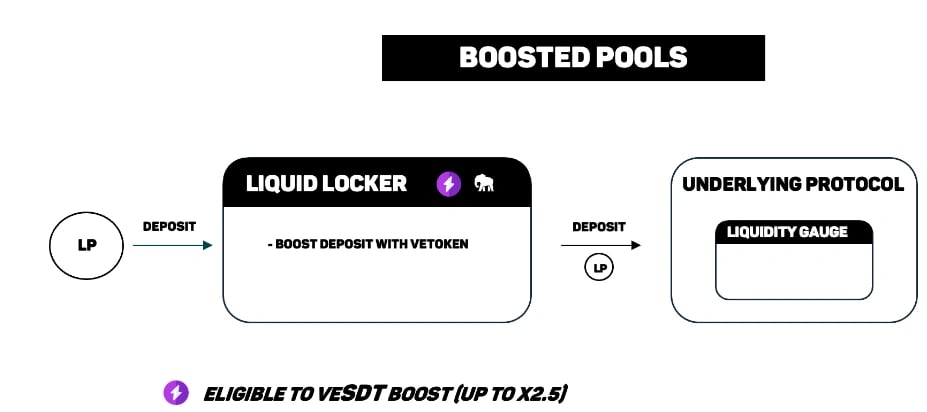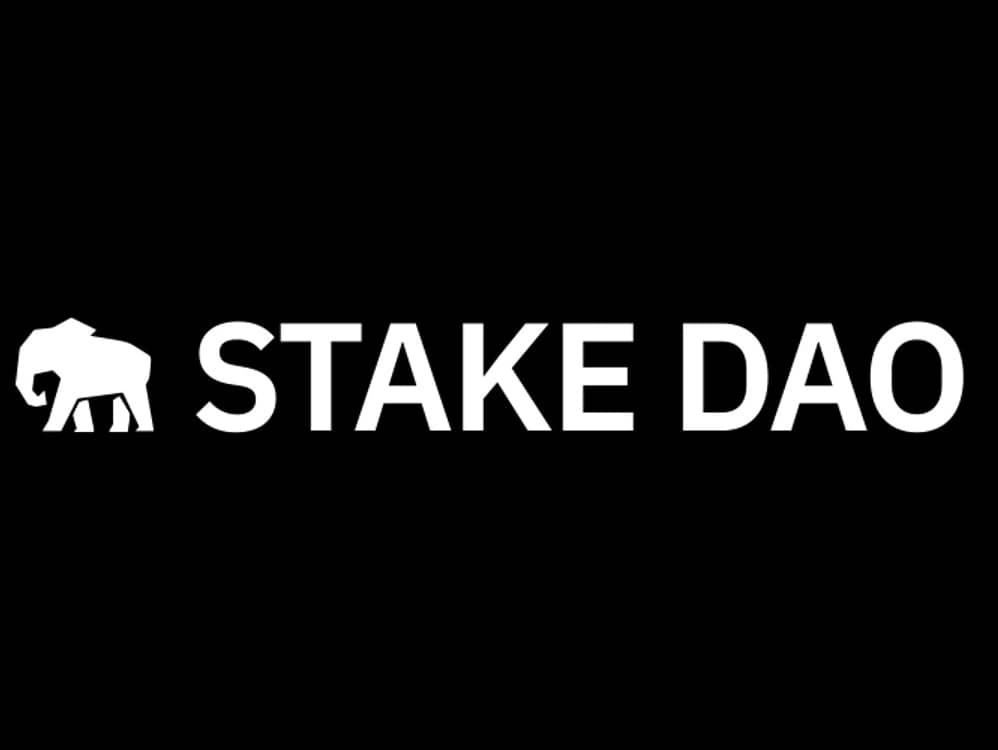위키 구독하기
Share wiki
Bookmark
Stake DAO
0%
Stake DAO
Stake DAO는 이더리움에 구축된 DeFi 플랫폼으로, 2021년 초에 출시되었습니다. [1][2][4]
Stake DAO는 사용자가 투표권 또는 수익률 중 하나를 선택해야 하는 현재 DeFi 프로토콜의 한계를 해결합니다. Stake DAO의 Liquid Locker를 통해 사용자는 수익률을 높이고, 유동성을 유지하며, 거버넌스 권한을 행사하고, 크로스 체인 기능에 접근할 수 있습니다. 이는 veToken 및 Liquid Locker를 중심으로 한 제품 조합을 통해 달성됩니다. [4]
Liquid Locker
Stake DAO Liquid Locker를 통해 사용자는 잠긴 토큰의 유동적인 버전인 sdToken을 대가로 토큰을 잠글 수 있습니다. 사용자는 이러한 sdToken을 Stake DAO에 스테이킹하여 보상을 얻는 동시에 투표권을 유지하거나, 기본 프로토콜에서 유동적인 토큰으로 사용할 수 있습니다. [5]
Liquid Locker를 사용하면 사용자는 Liquid Locker에 기본 토큰을 잠그고 그 대가로 sdTOKEN을 받을 수 있습니다. 예를 들어, 사용자는 Liquid Locker를 통해 FXS를 잠그고 그 대가로 sdFXS 토큰을 받을 수 있습니다. 잠긴 FXS 1개당 로커는 sdFXS 1개를 발행합니다. 이 아키텍처를 통해 sdFXS 보유자는 Frax에서 FXS 게이지 할당에 대해 스냅샷을 통해 오프체인으로 주당 1회 투표할 수 있습니다. [5]
MAV Liquid Locker 출시
2023년 7월 7일, Stake DAO는 MAV Liquid Locker가 출시되었다고 발표했습니다. 이를 통해 사용자는 Maverick Protocol의 MAV 토큰을 입금하고 그에 상응하는 양의 sdMAV를 받을 수 있습니다. sdMAV는 Stake DAO의 veMAV 로커의 유동적인 지분을 나타냅니다.[9]
sdMAV를 보유함으로써 사용자는 향상된 거버넌스 권한, 투표 인센티브, 잠재적으로 향후 기본 수익률을 포함하여 veMAV의 이점을 경험할 수 있습니다. [9]
Votemarket
Votemarket은 특정 게이지에 투표하도록 유권자에게 인센티브를 제공하여 개인과 프로토콜에 권한을 부여하도록 설계된 플랫폼입니다. 이는 veTokenomics 프로토콜에서 보상 인플레이션의 방향에 영향을 미치며, 이는 풀에서 유동성 증가를 지속적으로 추구하는 데 중요한 측면입니다. [6][7]
Votemarket 기술
Votemarket은 스마트 계약으로, veToken 프로토콜당 하나의 계약이 있습니다. 기본 게이지 투표 계약을 읽어 사용자가 현재 기간에 투표한 투표를 추적합니다. 그런 다음 보상은 인센티브 제공자가 설정한 투표당 금액과 남은 기간 수를 기준으로 분배됩니다. [6]
계약은 매주 목요일 오전 12시 UTC에 종료되는 7일 기간으로 운영됩니다. 사용자는 투표 참여를 기준으로 에포크 변경 시 인센티브를 청구할 수 있으며, 투표당 최대 보상으로 제한됩니다. [6]
토큰노믹스
Stake DAO 토큰
SDT(Stake DAO 토큰)는 Stake DAO의 거버넌스 토큰입니다. 2021년 프로토콜 출시와 함께 도입되었습니다. 토큰을 DAO에 입금한 사용자가 획득하는 토큰이며 플랫폼의 기본 토큰으로 동시에 기능합니다. 설정된 시간이 만료되면 입금된 SDT 토큰은 개별 입금이 DAO 플랫폼에 대한 수익으로 발생시킨 수수료 수에 비례하여 모든 사용자에게 분배됩니다. 토큰 보유자는 DAO 수수료의 일부를 받고 청구하려면 획득한 SDT를 스테이킹해야 합니다. [2][7]
SDT의 총 희석 공급량은 100,000,000 SDT입니다. 다음과 같이 분배되었습니다.
- 초기 에어드롭: 1.5%(1,500,000 SDT), 2021년 1월 20일에 분배됨
- 초기 기여자, 엔젤 투자자 및 재단: 36%(36,000,000 SDT), 2021년 1월부터 2년에 걸쳐 선형 베스팅
- Stake DAO 재단(향후 사용을 위해 보관된 토큰): 4%(4,000,000 SDT)
- 프로토콜 사용자: 57.35%(57,352,941 SDT) 거버넌스에서 설정한 비율로 분배됨
- 재무부: 1.15%(1,147,059 SDT) 프로토콜 사용자와 동일한 비율로 분배됨(MasterChef 계약에서 SDT가 발행될 때마다 0.02 SDT가 발행되어 재무부로 전송됨) [7]
veSDT
veSDT는 Stake DAO의 거버넌스 토큰입니다. 설정된 시간 동안 SDT를 잠근 것을 나타내는 지표 토큰입니다. 사용자가 더 오래 잠글수록(최대 4년) 플랫폼 전체에서 부스트와 이점이 더 커집니다. [7]
거버넌스 프로세스
Stake DAO 생태계는 생태계를 관리하는 오프체인 제안(Stake DAO 스냅샷)에 투표하는 veSDT 토큰 보유자가 제어합니다. 과반수 지지(투표의 >50%)를 얻은 제안은 DAO Multisig에서 실행합니다. [11]
성공적인 거버넌스 프로세스를 위해 사용자는 먼저 제안 프레임워크를 사용하여 포럼에 공유하고 포럼에서 최소 2일 동안 커뮤니티와 교환하여 제안을 생성해야 합니다. 그런 다음 사용자는 제안 프레임워크에 따라 Stake DAO 스냅샷에 제안을 게시할 수 있습니다. 성공하면 제안 페이로드가 실행되고 DAO Multisig에서 구현됩니다. [11]
전략
전략은 Stake DAO의 필수적인 부분입니다. Liquid Locker의 잠재력을 최적화하도록 설계되었습니다. 게이지가 있는 기본 프로토콜의 각 풀은 Stake DAO에 해당 전략을 가질 수 있습니다. 이러한 전략은 Liquid Locker가 소유한 veToken에 의해 부스트되어 해당 전략에 입금한 모든 사용자에게 이익이 됩니다. [12]
기술
사용자는 기본 프로토콜에서 유동성을 제공하여 획득한 LP 토큰을 전략에 입금할 수 있으며, 여기서 기본 유동성 게이지로 전달됩니다. 추가 가스 비용 없이 입금하도록 선택할 수 있으며, 후속 입금자는 이전 입금자의 잔액의 일정 비율을 받습니다. 전략은 Liquid Locker veToken 잔액을 사용하여 보상을 부스트하고 사용자는 보상을 직접 청구하거나 Liquid Locker에 다시 복합하여 지속적인 완전 부스트를 보장할 수 있습니다. 전략은 수익률을 높이기 위해 SDT 인센티브를 받을 수도 있습니다. [12]

파트너
B2B
생태계
아키텍처
Stake DAO 아카데미
Stake DAO 아카데미는 사용자가 플랫폼에서 다루는 모든 용어를 이해할 수 있도록 Stake DAO에서 시작되었습니다. 아카데미는 암호화폐 공간에서 사용자의 학습 요구 사항에 대한 포괄적인 리소스가 되는 것을 목표로 합니다. [8]
Reserve의 투자
2023년 6월, 스테이블코인 프로토콜 Reserve는 수익률 파밍 앱 Stake DAO(SDT), Curve(CRV) 및 Convex(CVX)의 거버넌스 토큰에 2천만 달러를 투자할 것이라고 발표했습니다. 이 투자는 Reserve의 스테이블코인인 RToken의 유동성을 높이고 이러한 앱의 거버넌스 시스템 내에서 Reserve의 투표권을 높이는 것을 목표로 합니다. [10]
Reserve 팀은 2천만 달러 투자를 통해 “담보 대출, 지갑 제품, 실물 자산 토큰화 및 보다 투명한 핀테크 시스템을 포함하여 RToken에 대한 새로운 기능을 사용할 수 있을 것”이라고 밝혔습니다.[10]
잘못된 내용이 있나요?
